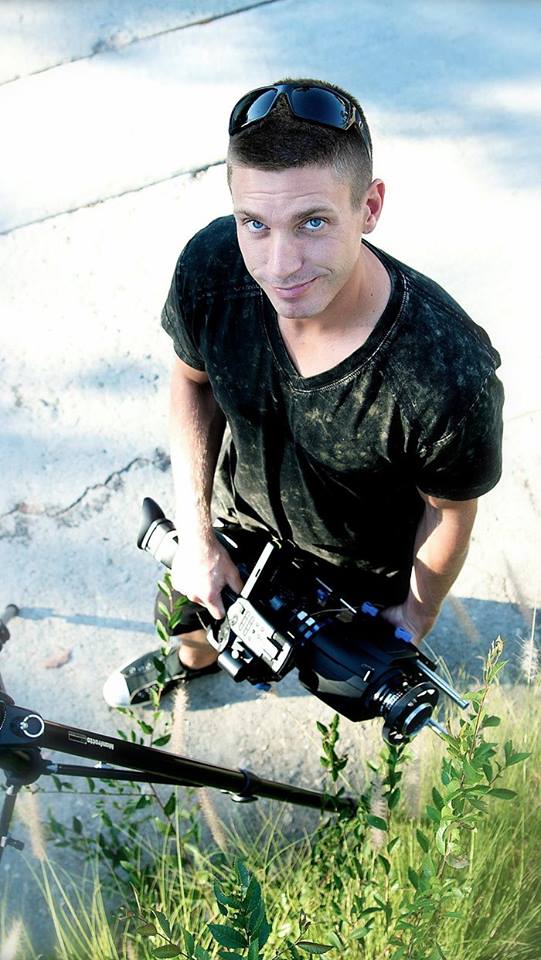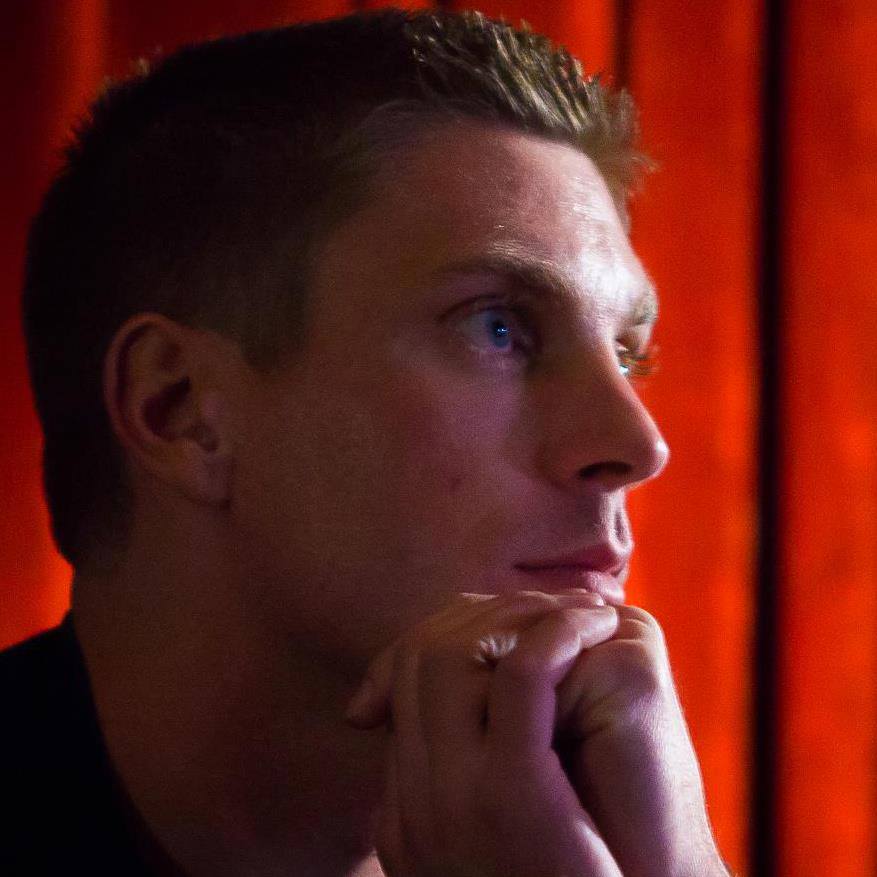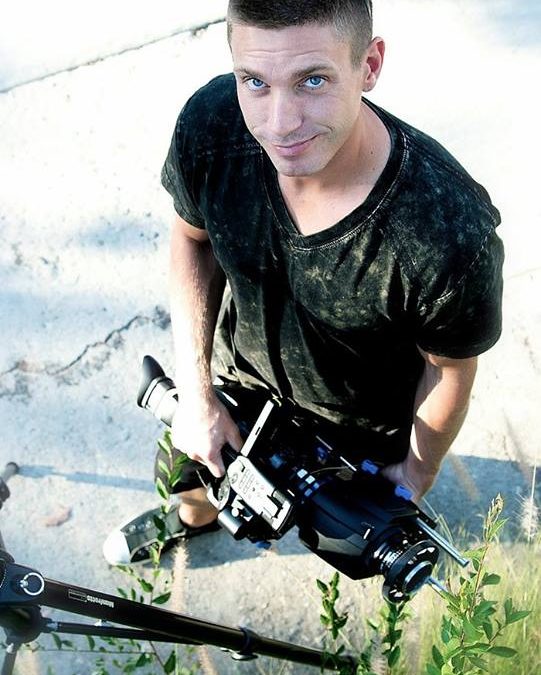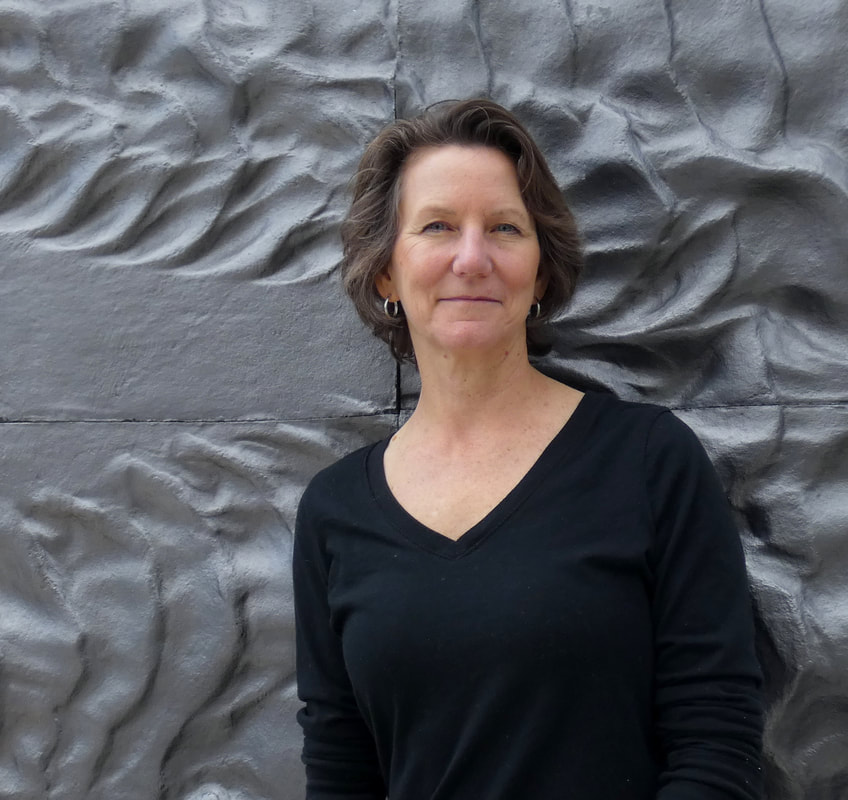Most of us will never know what it is like to see the intimate details of our lives portrayed on the silver screen. But Ian Webb knows all too well the emotions that come with that experience. He is the oldest son of Pulitzer Prize-winning investigative journalist Gary Webb, the subject of the 2014 film “Kill the Messenger,” starring Hollywood heavyweight Jeremy Renner. Based on the book of the same name, the film details the rise and ultimate freefall Gary Webb experienced after his series “Dark Alliance” was published in the San Jose Mercury News in 1996. The series detailed connections between the Nicaraguan Contras, the CIA and the explosion of crack cocaine into Los Angeles in the 1980s. At first lauded, the series and Webb were later savaged by other media outlets, driving him out of the business and eventually to suicide. The book by author Nick Schou came out in 2006 and did much not only to restore Webb’s reputation but take to task the media giants that turned on him so viciously. The movie in many ways completed Webb’s redemption. I recently sat down with Ian, a burgeoning cinematographer, to discuss the movie and his own work as a storyteller.
RE: Where do you feel like you’re at in terms of your career?
Webb: Being behind a camera and editing a story, those are my passions. I’m editing my first feature right now, “Mamaboy,” directed by Aaron Leong, which I think will open up more doors. Right now I’m about to start editing a documentary piece for Outside Television that I also shot. It sometimes helps to do both the shooting and editing, but you sometimes see also ‘around the frame’ too much because you know how long it took you to get that shot. But when you’re an editor and you weren’t there on set, you don’t care. You just care about what helps advance the story.
RE: The common thread for this blog is storytelling, and that is of great interest to you. When you get into editing, after you’re done filming everything, that’s when you make the movie, right.

The man with the camera
Webb: Yeah, it’s a big puzzle. You can put it together many different ways but there’s only so many ways that make the most sense.
RE: Have you ever thought about screenwriting?
Webb: Screenwriting, directing or producing are definitely things I like to leave up to other people. I like taking a script and maybe advancing it, but the writing is definitely not something that’s my passion or strong suit. I’m not somebody who can sit down and write a story. I have to have some kind of idea. I think that’s why I like editing so much. The story is there and by editing in some way you can make it even better than it actually is. That’s like when I’m behind the camera, I like a director who has a vision, because it gives me more ideas to help his vision come alive, to enhance it.
RE: Writing and reporting tends to be a solitary pursuit. With filmmaking, it’s such a collaborative thing. It takes a village.
Webb: It does. And I think that’s why I like being on set, because editing is very solitary job and I’m somebody who likes to be out on my feet around lots of people. So by splitting those two passions up I found a really happy balance for myself. But I feel like the overall filmmaking process, if one person tries to do two jobs, one of those jobs is going to suffer.
RE: I’ve thought about you a lot since “Kill the Messenger” came out. I can’t imagine what it would be like to sit there and watch your life be portrayed in this way. You had a lot of input for the film. Tell me a little bit about that whole experience.
Webb: This was seven or eight years in the making. The book was first and then it quickly got adapted to a screenplay, and then optioned quickly by Universal. But they kept shelving it, and then every year they would buy the rights again. In retrospect, I’m actually really happy that it did take so long because there’s this whole new generation of people that have no idea about my father and what happened to him. But as soon as Jeremy Renner read the script and signed on, that’s when the wheels started turning. Everything moved incredibly fast. And we did have some input. When we first got the script my mom and I had to read it within a few hours because they put it online and basically set a timer. After a day it would expire, so we sat down and read through it really fast. We really didn’t know how we felt about it, because certain scenes are very enhanced for suspense. You’re compressing an entire lifetime down to an hour and 45 minutes. My mom and both felt like it was something we needed to sleep on, but in the morning we called each other and, the more we thought about it, the more we both liked it. I remember getting the contract and they basically said ‘by signing this you’re giving us the rights to everything, your entire life and we can do whatever the hell we want with it and write about anything we want.’ We had a lot of trust in the producers and the director, and the screenplay writer was an investigative journalist himself prior to becoming a screenplay writer. So there was a lot of trust there. And there were certain things we could say we liked or didn’t like, though I don’t know how much they took into consideration. I think the most interesting part we got to be involved in though was the set design. For a set design company, they don’t get the chance to recreate somebody’s life everyday, so this was incredibly exciting for them. So a lot of the stuff you see in certain scenes, household scenes or my dad’s office scenes, those are actually his awards that he won. We shipped boxes and boxes of our life to them. They included a lot of that in the movie. The recreated shirts that he used to wear, hockey jerseys we used to have. I think that was one of the coolest parts because they did that for us. No one else knew what car my dad used to drive, or what motorcycle he had. That was all for us. No one else would have known. But it gives the characters personality, makes them authentic. It was really something else just to see how much hard work that part of the production put into it. Everyone on a film busts their ass, but it was really impressive to see the production and costume design people care so much about what the movie looked like.
RE: Were you happy with the end product?
Webb: I was, particularly when you consider how bad it could be. You’re taking such a sensitive subject and putting it on a giant screen and spreading it across the world. That’s somebody portraying your father and your mother. To see how it all ended up, it could have been a lot worse. The one part about the story is that it’s not a happy ending. I understand, there’s no payoff for the audience. I’ve thought about it a hundred times, about what they could have done to give the audience some kind of resolution when they walked away and I can’t think of an answer. It’s not a happy story. That’s not so much a complaint I have, it’s just something I’ve heard from other people. It’s not a happy ending.
RE: I actually appreciated that they didn’t try to manipulate an ending that wasn’t real. It had a little more integrity than a lot of Hollywood endings.
Webb: Maybe I didn’t sound as happy as I am about how it turned out. The way it was done was overwhelming. I am very, very happy with how it ended up. I guess the only bitter part I have is how Focus Features just kind of dumped it at the end. I don’t know if you picked up on that. They got a new CEO after the movie was finished production, so any movie that he wasn’t involved with, he kind of put it on the back burner. They basically killed the advertising for it. Hardly put it in any theaters. But honestly, in the grand scheme of things, it’s a blessing, to have something actually go that far and have a great actor.
RE: I thought everybody was really good. What did you think of the guy playing you?
Webb: I really liked Lucas Hedges’s portrayal. It was interesting because, unlike my mother’s character, he didn’t contact me prior to filming. He wanted to take on his own interpretation. He as also a little older in the movie than I was in the time period. The reason they did that was to make the father son bond even stronger, and I completely understood that. It definitely blows my mind every time I think about it. But I really liked and I don’t think there’s anything I would have him do or say differently. It was very true and honest.
RE: Jeremy Renner is a fabulous actor.
Webb: And this role is why I think he jumped at it so quickly, because he’s kind of being typecast as an action actor with Bourne Identity and all the Avengers movies, which I’m sure I wouldn’t turn down either with those paychecks. And he’s a hell of a dramatic actor. One of the weirdest times of this experience came on the second day on set. We were in the video village, where they have all the monitors, and watching Jeremy with his outfit and the way they had his hair, it just felt like I was watching my father.

A reflective moment
RE: That had to be overwhelming.
Webb: My uncle was there and that’s exactly what he said. He said, ‘I feel like I’m watching Gary right now.’ He wasn’t as involved in the preproduction as we were, so for him this was just a punch right in the face, because he hadn’t seen anything up to this point. So he just kind of broke down. It was a very emotional moment.
RE: How about for your mom or your brother? What was their response to seeing themselves being portrayed? It had to be emotional for them.
Webb: Oh yeah. We had a prescreening at Focus Features down in Santa Monica, which was the first time any of us had seen the film. It was an incredibly emotional time for my mom, my brother, my sister and myself all in the dark watching this movie. My mom had met with the actress, Marie, who flew down to Sacramento and met with her for about three hours to talk about her character. She wanted to do it justice and make sure who she was portraying on screen was as authentic as possible. I think without that my mom would have probably felt a little bit more nervous about it, but that put an ease on her mind. And the rest of us too, to see that she cares that much about who she’s playing in a movie. My brother is the same way. My father’s death was hard, obviously, you can’t even put it into words how hard it is, but my brother, it took a special toll on him because he was so young. My sister is two years younger than my brother, so it was hard on her as well, but his way of coping with it was to not talk about and not deal with it. So to see this film on the screen, there were a couple times he had to walk out of the theater. He couldn’t deal with it. Since the movie’s come out, it’s weird to say but it was a little bit of closure for him. It’s helped him deal with those emotions again, because he hadn’t done so yet. He didn’t like to talk about it.
RE: Death is hard. You get better about it but I don’t know that you ever get over it.
Webb: Time helps. And everyone’s got different grieving devices.
RE: What about the reaction to the film? What do you think this does for how people see your father?
Webb: I really think the film served my father justice as best it could. The only negative reactions I can think of are the conspiracies theorists that stirred back up again. That was something I knew was going to happen. But for anybody who’s talked to me about how they felt about it, it redeemed some of my father’s work.
RE: Another thing I appreciated was that they did not falsely beautify him. I thought he was very real. That was my interpretation. Did you see any reaction that was different?
Webb: No, I think Jeremy Renner nailed my dad’s biggest weakness, which was his stubbornness. He nailed that on the head. I think without that stubbornness he probably wouldn’t have taken that story as far as he did. He hated when people told him he couldn’t do something. They fueled his fire more than anything. As for the film, I tried not to read certain reviews. After a while you become so overwhelmed with it, especially when the movie was coming out. I saved all the reviews I could find but some of them I didn’t read because they’re just other people’s opinions and I couldn’t care less about them. I was just happy, and I am happy, that the film got made, and I was happy with the way it portrayed my father. Yeah, there’s definitely things that made him imperfect, and Jeremy Renner really picked up on that. It’s amazing that he was able to pick up on all that just by watching old news stories or interviews and home videos. I think one of the coolest parts was that we were able to send Universal all of our home videos. My dad was huge on recording everything we did, so we shipped them all that and in return they digitized all of it and sent us back DVDs, which I thought was a nice gesture. You could tell Jeremy Renner watched some of those and took the time to investigate his character, so to speak.

On the set of Child’s Play, a movie he shot for yours truly in 2012
RE: As a filmmaker yourself, you have a huge hand in crafting a story. Do you feel like you learned something from this process that helps you in terms of story crafting?
Webb: Looking at it from a cinematographer standpoint, Sean Bobbitt, the way he shot it was interesting, kind of like a documentary the way he mostly did it all hand held. He shot it on film and old glass [lenses] to put you back in that time period, which really kind of helped move the story along and make it feel more real. From an editorial standpoint, one of the things I guess I noticed about the way it was edited was it was a lot of quick cuts and anything in the movie is there to advance the story along. There’s no fluff, which I really like. I know they filmed a lot more family scenes, because I remember the director told us they filmed all these great family scenes with Jeremy Renner interacting with the kids, but I guess a lot of the test audiences said they didn’t feel like it helped evolve the story. By including what they did in the final cut was enough to show you that he not only cared passionately about his job but he cared about his family and being away from his family. So I guess the biggest lesson I’ve learned from this is that you’ve got to cut the fluff. As nice as it is and I’m sure as beautiful as those scenes are, if it doesn’t help the story, you gotta let it go, because people don’t care.
RE: That’s a lesson all creative storytelling people have to learn. Cut the fluff.
Webb: Kill your babies. I’ve noticed when I’m editing a movie, or anything, I can watch it 100 times by myself and not see a damn problem with it. But as soon as I’ve put it in front of somebody else or had somebody else watch it, you’re in their shoes and you feel their patience or impatience to make a scene move. You can tell when someone is getting bored. I feel that’s one of the healthiest things I can do for myself when editing. Because it’s not for you, it’s for other people. It’s not just for you to read or watch. It’s for everyone.
RE: Do you feel like this story was told well enough that it’s not something you will revisits yourself at some point? Or are you ready to let this one fly?
Webb: I feel like if the movie had been terrible, maybe I would want to serve it justice. But honestly, this really helped make my peace with everything. Some days, especially around the holidays or the anniversary of my father’s death, it’s really hard. But honestly I’ve really dealt with this for so long that it’s not something I want to focus on for too long. It’s just not healthy. My entire family is so happy with the outcome of the film that I don’t think there’s anything I would want to do.
RE: That’s another good point about creative endeavors, to know when to say when, that the story has been told.
Webb: I feel like I’ve lived with it for so long that I wouldn’t want to revisit. I’m happy to talk about it with other people but it’s not something I would want to take on myself, like with a documentary or anything like that.
RE: What about other projects that are interesting to you?
Webb: I really loved Breaking Bad. I would love to work on a film or television series, because you have so much more time to develop characters and destroy them and make them into heroes. But I think one of the things I love so much about my job is the mystery of it. I don’t have one specific genre that I like to focus on. For me, I’m just happy to work and usually I’m happy to work on whatever it is, as long as it’s fun. I don’t have huge career passions in the sense that this is exactly what I know I want to do. That’s why I love what I do, because it’s always different. I think singling myself out to one single genre or job would be boring.


